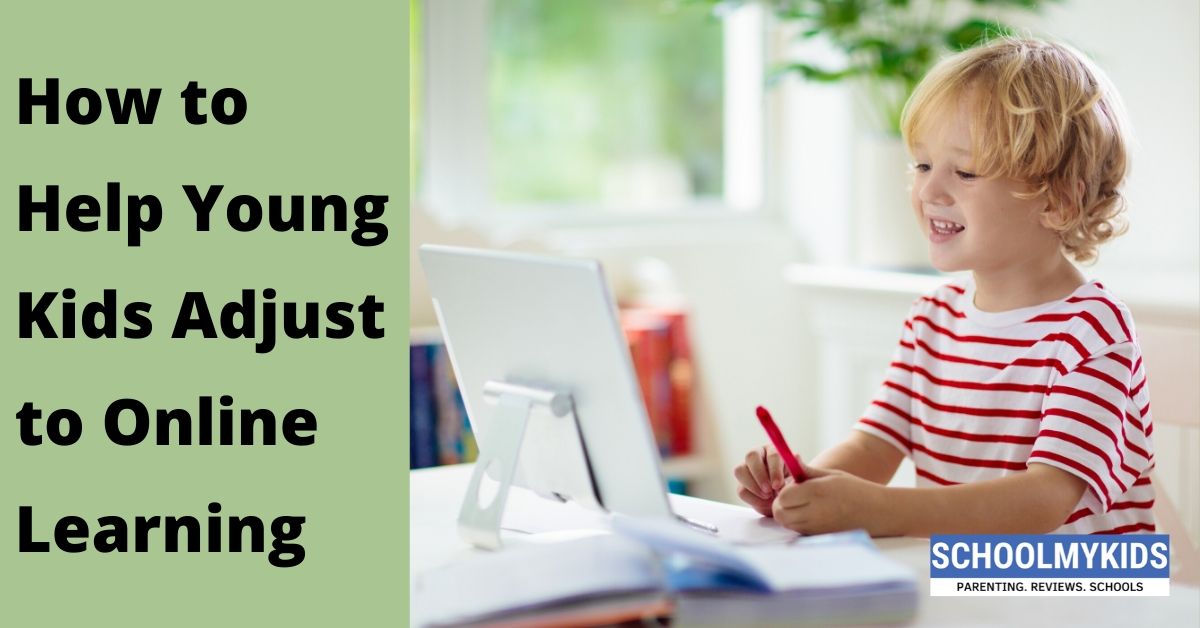My six-year-old daughter’s school reopened this week after summer holiday. Or should I say, her classes went back online.
In mid- March, when the online classes started, we noticed that our daughter often became restless about halfway through the forty-minute, daily Zoom sessions. She soon began to ask us, during the class, how much longer until the class ended. Requests to visit the washroom, get a drink of water, find a snack, and pet the dog also increased. Explaining to her that executing handstands on the couch during the class was not acceptable to her teachers or us, but yes, it was funny. Her teachers also mentioned to us during our online parent-teacher conference, they had also noticed a change in her behavior, from how she normally conducts herself in class.
When we asked our kid what’s up, she noted that she didn’t like the chaos of kids talking over each other, felt bored with some of the content, and felt frustrated that she couldn’t get her teacher’s attention to answer a question or share her opinion. While I’ve been in the same room during several of the classes and her issues are legit, I can also attest that her teachers are doing a great job with their resources. In other words, there’s no one to blame; it is what it is.
As we return to the online classes after the summer break, I wanted to do some research on how I can better help my daughter adjust to online learning. One issue is that she’s not getting the attention she’s probably used to getting when in the classroom. To address this, I wanted to explore a bit more to see what other tips or strategies I could pick up and try out. Some of these tips and strategies might be obvious, but there are several here I hadn’t considered and look forward to trying out. I’ll let you know at the end of the term how they go!
Everyone is Adjusting to Online Learning
Sometimes I lose my patience, for example, when my daughter can’t stay seated during her forty-minute Zoom class. But after a few minutes, when I am cool, calm, and collected, I remember that this is everyone’s first time living through a global pandemic. Our kids, the other students, and their parents, teachers, and school administrators, everyone is adjusting to this new reality together. And from what I can see, at least at my daughter’s school, they are doing the best job they can. Whatever challenges any of us are facing, our frustration is not from a lack of trying or effort but wanting to support our kids the best we collectively can.
I recently read that if your child didn’t show any emotional or behavioral problems before instruction moved from the classroom to a screen, he or she is likely going through their first set of issues now. And if your child did face challenges before in the classroom, these struggles may become more intense. I think this is an essential point for parents to remember as we help our kids adjust to online learning. It applies to their teachers and us too.
What Does Our Child’s Reaction to Online Learning Tell Us?
Our child’s behavior is often not the root of the problem. When my daughter freaks out 5 minutes before the start of her online class because her hair is puffy on top of her head, and no matter how many clips we put in, it’s still puffy, it’s not about her hair. Something else is happening under the surface, which is probably related to her upcoming online class.
Do you know the iceberg metaphor? The tip of what we can see out of the water is our child’s behavior: my kid can’t stay seated, is upset and angry about her hair before the class, is distracted more than usual, and at times tries to talk her way out attending the class. These are many of the behaviors I’ve seen my kid cycle through since the first of March when her online classes started.
So, sticking to the iceberg metaphor, what’s causing these behaviors, what are the feelings that I can’t see that are causing this behavior. And chances are, she is not aware of how these feelings and emotions are connected to her behavior either.
When our kids are flooded with emotion, to get to the source of what’s actually happening, we have to be calm and patient, creating a safe space for our kids to express themselves.
Stop Trying to Recreate the 7 Hour School Day
What is your picture of a good day of learning at home? What are your goals? What do the experts suggest are reasonable, age-appropriate goals for your child?
For example, the general rule to determine your child’s attention span is to take the age of your child and multiply by 2 to 3 minutes. Thus, a six-year-old, my daughter’s age, her attention space is around 18 minutes. Her daily online Zoom class is forty minutes long, so naturally, at least once in forty minutes, it makes sense that she needs a break or switch to a different activity.
Each week we print a series of handouts that correspond with what the kids are learning through their Zoom class. When my daughter starts to lose interest in one of the pages, I have to check myself and see how long we’ve been working on it. Most of the time, it’s around 15 minutes. Anything more than this is an unreasonable expectation.
Also remember that while our kids might be at school from 7 to 8 hours, most experts explain, depending on the age of your child, at best, there are two to three hours of actual academic work. Many of the experts I’ve read suggest that if your child is getting between two and four hours of age-appropriate academic study a day, relax, they’re doing fine.
Move Their Bodies Before Their Online Class Starts
I’ve recently started to put this strategy into practice. My daughter’s class begins at 9:45 AM. We’ve recently moved our daily bike ride from after class to before class. The temperature is cooler earlier in the day, anyway. So far, this seems to relax her before class.
Stay on Top of the Material
After the summer break, one of my goals is to be more on top of her daily assignments. While I print the homework sheets and go through them with my daughter, I’m not often enough actively listening to her class.
I know many parents are away for work or working from home and being able to sit with your child during the class isn’t possible. And that’s ok. You can always check out and review the homework assignments, be proactive in asking what the class did today, check in with other parents who sit in on the class. It’s all about being connected to your child, what they are doing, and what is happening at school or online. The more you know, the better you’ll be able to respond to what’s actually happening when their behavior changes.
Collaborate with the Teachers
When we observe a behavior or have an opinion of what our child might be feeling, share what you’re seeing with the teacher. When our daughter’s teacher confirmed with us our daughter usually keeps her seat in the classroom and is seldom distracted during normal in-person school, we knew for sure something was going on. Her behavior has changed. The question now is, why? Our kids’ teachers are often instrumental in helping us unravel what is going on under the water.
Consider Having an Adult Stay in the Room During Class
One of the adjustments I’ve made post-summer break is to spend more time in the room during the online class. I know this isn’t an option for many parents because they’re either working outside the home, or in the study. But if you are working from home, consider shifting your schedule if possible, to spend, if not the full amount of time, 15 to 20 minutes.
While I’ve stayed in the room before, usually I have my head in my phone or working off my laptop. It’s been helpful for me to stay in the room with the sole purpose of being there with her during class. If she’s experiencing a feeling of not being accepted, safe, or sure of herself, I’m hoping this will help. Simply being in the room and observing how the teachers manage the class, and how she interacts with the teachers and other students is the information I need to ask better, more informed questions when I want to pry gently. If you have a nanny or grandparent who can be your eyes and ears, let them know what you want them to watch for and talk to them about what they observe.
Empathy, Curiosity, and Safety
The only way we can discover what’s happening under the water’s surface is to provide a safe place for our kids to express their emotions. There’s always a reason, an experience, a feeling causing the behavior.
This transition from the classroom to virtual learning has so many implications—from academics to social interactions. There are so many factors to consider.
If you are agitated, do you always know immediately why? So, why would we expect a six-year-old to know either? I’m talking to myself now, but you see where I’m going with this. It’s likely less about academics and more about feeling safe, being a part of the class, and reacting to the unknown.
Too often, we are upset that they aren’t paying attention to the teacher and can’t explain why they can’t sit still as they did before in the classroom. Instead, might I suggest, our child might be having a perfectly normal, healthy reaction to a messed-up global pandemic.
Maybe they’re scared of getting sick, lonely because they can’t sit with their best friend, or used to how the teacher calls on them in the classroom. And without a cure for COVID-19, their best friend to play with again, and their teacher’s attention and positive reinforcement, they’re a bit lost. Whatever it might be, we can only help them discover what’s underwater by providing a safe place for them to express themselves.
Check-in with Yourself
Being a parent is a wild experience. Every time I react to my daughter’s behavior with anything less than patience, at some point, I realize little to nothing I said or did was helpful. I think the keyword for me is react. Reacting is as natural as a reflex, like throwing up our hands to block a ball coming at our face. But, when it comes to responding to our child’s behavior, we can work on ourselves to minimize the reaction, at least outwardly, and go into enlightened parent mode where we can validate their feelings, listen to whatever explanation they have or don’t have, and hug them, so they keep coming back to us.
If you have any advice, resources, or examples of how you’ve helped your child adjust to online learning, please share in the comments below.








Be the first one to comment on this story.